第13章 LITERARY AND PARLIAMENTARY LIFEKING(5)
Unlike most authors, from Moliere down to Dickens, he never read aloud to friends any portion of the unpublished manuscript; never, except to closest intimates, spoke of the book, or tolerated inquiry about it from others. When asked as to the progress of a volume he had in hand, he used to say, "That is really a matter on which it is quite out of my power even to inform myself"; and I remember how once at a well- selected dinner-party in the country, whither he came in good spirits and inclined to talk his best, a second-hand criticism on his book by a conceited parson, the official and incongruous element in the group, stiffened him into persistent silence. All England laughed, when Blackwood's "Memoirs" saw the light, over his polite repulse of the kindly officious publisher, who wished, after his fashion, to criticise and finger and suggest. "I am almost alarmed, as it were, at the notion of receiving suggestions. I feel that hints from you might be so valuable and so important, it might be madness to ask you beforehand to abstain from giving me any; but I am anxious for you to know what the dangers in the way of long delay might be, the result of even a few slight and possibly most useful suggestions. . . . You will perhaps (after what I have said) think it best not to set my mind running in a new path, lest Ishould take to re- writing." Note, by the way, the slovenliness of this epistle, as coming from so great a master of style; that defect characterizes all his correspondence. He wrote for the Press "with all his singing robes about him"; his letters were unrevised and brief. Mrs. Simpson, in her pleasant "Memories," ascribes to him the ELOQUENCE DU BILLET in a supreme degree. I must confess that of more than five hundred letters from his pen which I have seen only six cover more than a single sheet of note-paper, all are alike careless and unstudied in style, though often in matter characteristic and informing. "I am not by nature," he would say, "a letter-writer, and habitually think of the uncertainty as to who may be the reader of anything that I write. It is my fate, as a writer of history, to have before me letters never intended for my eyes, and this has aggravated my foible, and makes me a wretched correspondent. I should like very much to write letters gracefully and easily, but I can't, because it is contrary to my nature." "I have got," he writes so early as 1873, "to shrink from the use of the pen; to ask me to write letters is like asking a lame man to walk; it is not, as horse-dealers say, 'the nature of the beast.' When others TALK to me charmingly, my answers are short, faltering, incoherent sentences; so it is with my writing." "You," he says to another lady correspondent, "have the pleasant faculty of easy, pleasant letter-writing, in which I am wholly deficient."In fact, the claims of his Crimean book, which compelled him latterly to refuse all other literary work, gave little time for correspondence. Its successive revisions formed his daily task until illness struck him down. Sacks of Crimean notes, labelled through some fantastic whim with female Christian names - the Helen bag, the Adelaide bag, etc. - were ranged round his room. His working library was very small in bulk, his habit being to cut out from any book the pages which would be serviceable, and to fling the rest away. So, we are told, the first Napoleon, binding volumes for his travelling library, shore their margins to the quick, and removed all prefaces, title-pages, and other superfluous leaves. So, too, Edward Fitzgerald used to tear out ofhis books all that in his judgment fell below their authors'
highest standard, retaining for his own delectation only the quintessential remnants. Vols. III. and IV. appeared in 1868, V. in 1875,VI. in 1880, VII. and VIII. in 1887; while a Cabinet Edition of the whole in nine volumes was issued continuously from 1870 to 1887. Our attempt to appreciate the book shall be reserved for another chapter.